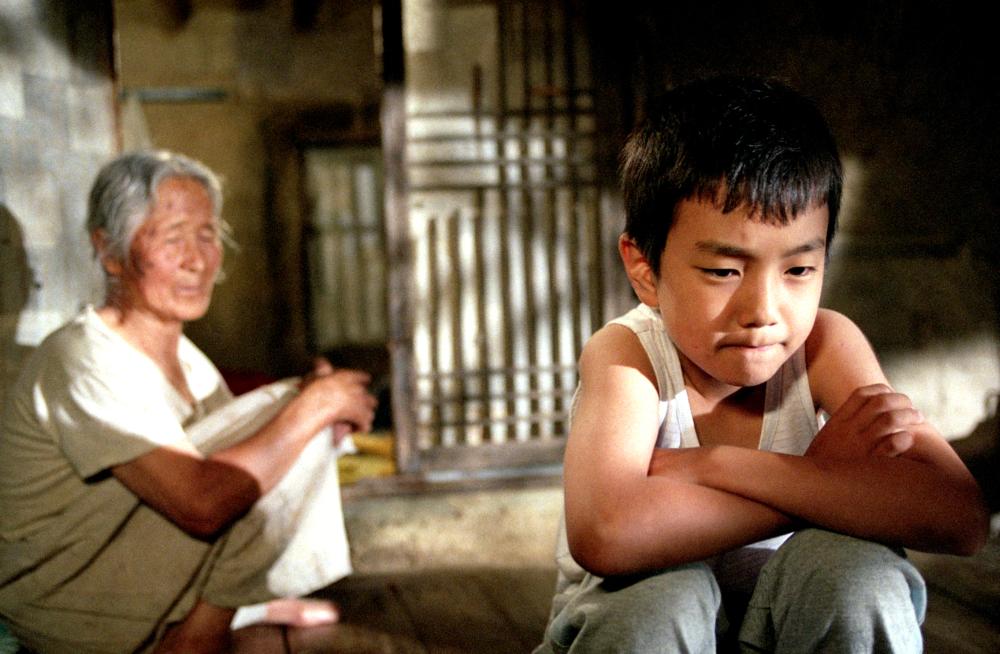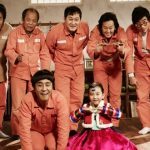The film “The Way Home” is not just a touching tale of human love and the power of transformation; it also delivers thought-provoking lessons about education and life.
“The Way Home” explores an everyday situation: for one reason or another, a father or mother must leave their child in the care of grandparents. Little Sang-woo is sent to the countryside to live with his elderly, mute grandmother while his single mother searches for work in the city. Readers can likely imagine how dreary and stifling a rural village might feel to a city boy—especially when his grandmother cannot even speak to him. Yet, through her actions, she teaches Sang-woo a lesson in love and compassion. How exactly? I encourage you to take the time to watch the film yourself. I believe that to truly appreciate a movie, we should experience it firsthand rather than relying solely on summaries or reviews. It’s no different from choosing a bowl of instant chicken-flavored noodles over a fragrant, roasted chicken.
“The Way Home” left me with a few key takeaways:
There Are No Bad Kids, Only Kids Raised Poorly
For the first 60 minutes or so of the film, you might find yourself fuming at Sang-woo’s behavior. He seems to embody greed, anger, and ignorance all at once, constantly finding ways to torment his poor grandmother. He cares only about getting the tasty food he wants, lashes out when his demands aren’t met, and is quick to satisfy his own needs through misdeeds like cursing, breaking things, or stealing.
Watching Sang-woo act this way, we can partly guess how his mother raised him—or rather, failed to raise him properly. City life may have given him good food and nice clothes, but it didn’t provide him with a meaningful education. Sure, he went to school and learned to read and write, but his everyday actions remain wild and instinct-driven.
Children are born innocent and pure, but that innocence isn’t fixed—it constantly absorbs influences from the world around them. So, if a child grows up in an environment of unchecked freedom, disorder, unreasonable demands, and no sense of responsibility, they can easily become as unruly as Sang-woo was in his early days with his grandmother.
The Responsibility of Raising Children Lies with Their Parents
While I deeply admire and am moved by the grandmother’s love—her weathered appearance and enduring spirit revealing a heart as vast as a Buddha’s—I can’t help but feel sorry for her. In old age, people deserve rest, both physically and mentally, to pursue their own joys in life. When parents bear children but pass the responsibility to grandparents, they plant the seeds of ingratitude. Children should care for their aging parents, not the other way around, with parents continuing to shoulder the burden of raising both their children and grandchildren. As a result, when those children grow up, they may repay their parents with the same ingratitude. Perhaps only when parents are no longer around should grandparents step in to care for their grandchildren out of necessity. But as long as parents are present, children should be raised and guided by them. This is why everyone should think carefully before stepping into marriage—because marriage brings new life into the world. Whether that life brings joy, pride, or pain depends entirely on whether the parents have the strength and wisdom to raise it well.
I’m not sure when notions like “grandparents need to care for their grandchildren to find happiness” or “old age is lonely without grandkids to hold” started to take root. Personally, though, I think relying too heavily on grandparents is a form of exploiting their kindness, a sign of immaturity, and a sneaky way of shirking the hard work and challenges of parenthood. Parents who do this often lack the resilience and maturity to truly deserve the title of “parent.” They have children just to check a box, caring little for the quality of their upbringing.
The film’s setting also reveals a village where Sang-woo’s grandmother lives, largely devoid of young, able-bodied people. Most of its residents are the elderly and young children, leaning on each other for support. It seems that only when young adults stumble or falter do they return to this weathered, desolate place to entrust something—or someone—to it, as Sang-woo’s mother did. Here, I see a hollowing out of humanity behind the decision to leave the village in pursuit of a better life.
Hardship Tests People, but It Also Helps Them Grow
In a place of scarcity, characters like the grandmother, the farmers, and the young friends of Sang-woo still maintain a gentle, compassionate way of life. It’s this atmosphere of kindness that gradually transforms Sang-woo. They don’t lecture him about right and wrong; instead, they teach him through their actions. The selfish boy he once was begins to change—the hard stone in his heart softened by his grandmother’s love. He stops demanding that others cater to him and starts learning to give. The night before returning to the city with his mother, he threads needles for his grandmother in advance and writes words on pictures for her to send him instead of letters (since she’s nearly blind and illiterate). He even reminds her to send him a blank sheet of paper if she falls ill, so he can come back to her.
Returning to the city this time, Sang-woo is no longer just a little boy—something within him has shifted. I believe this change will become a foundation for both him and his mother in the future. Material comforts may have stripped him of morality, but his simple, rustic grandmother reminded him of his humanity. To live as a true human being means living with a moral compass guiding your spirit.
In Place of a Conclusion
Sang-woo’s grandmother reminds me of a teaching from the Buddha in the book Old Path, White Clouds: “Rahula, learn to be like the earth. Whether people scatter upon it pure and beautiful things like flowers, fragrant water, or sweet milk, or dump upon it filthy, stinking things like excrement, urine, or blood, or even spit upon it, the earth receives it all with indifference—neither delighting in the pleasant nor recoiling from the foul.”
She lived a life of hardship, patience, and nobility. But the image of her bent back and her feet treading over jagged rocks tugs at the viewer’s heart. If only there had been a stern grandfather to guide the family, perhaps some of the bitterness brought by her daughter and Sang-woo could have been eased. True human love, it seems, must always be paired with wisdom.















